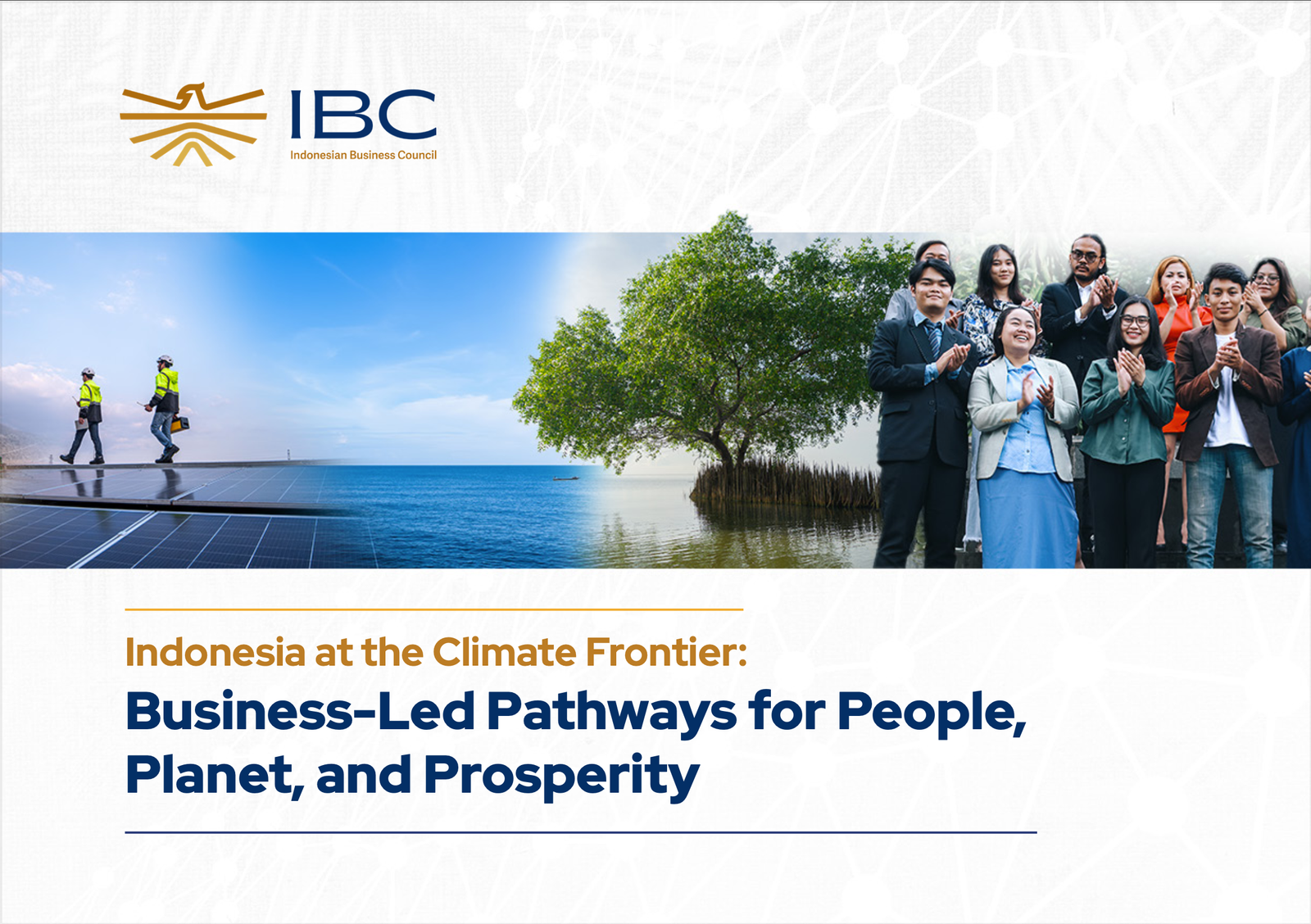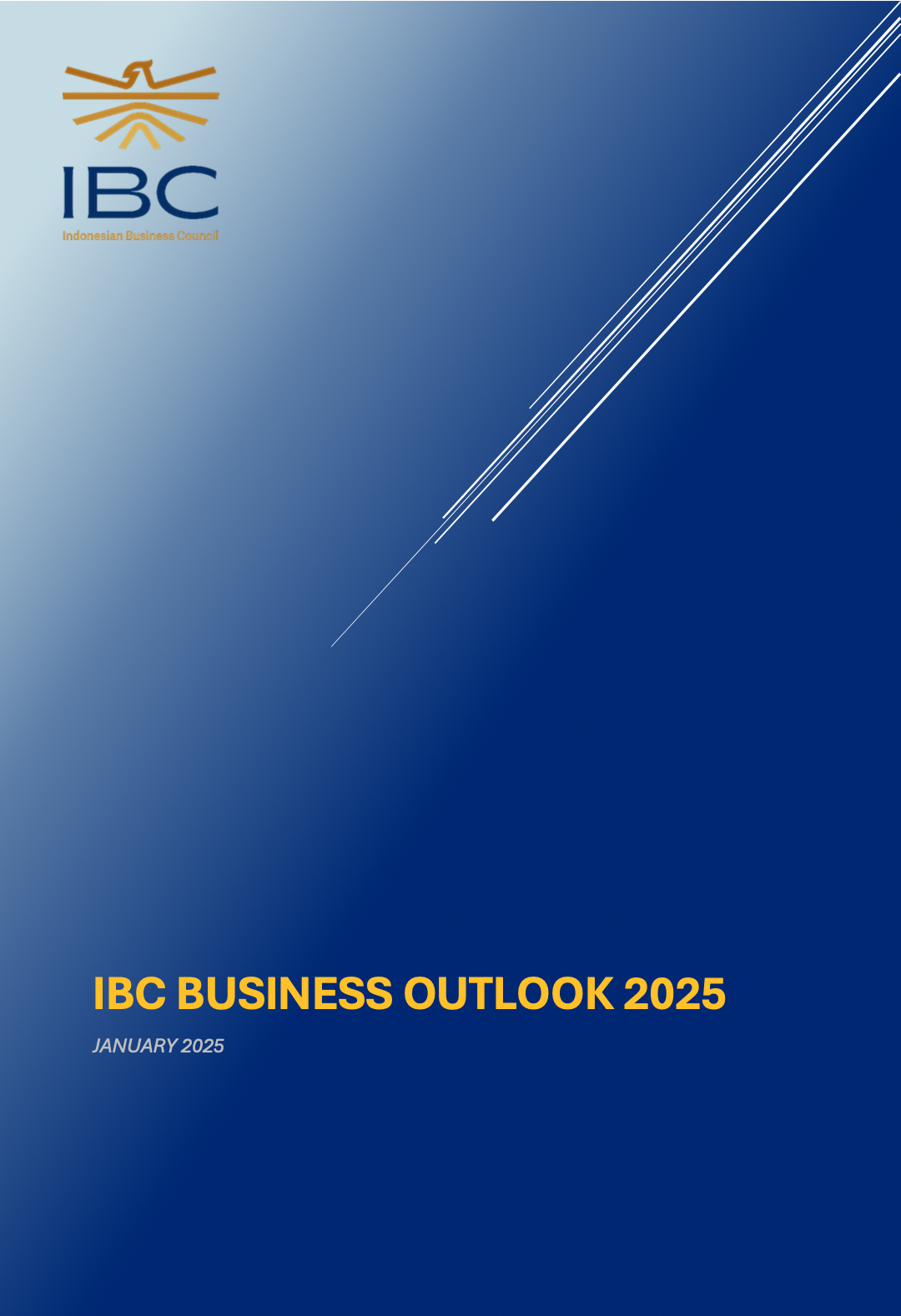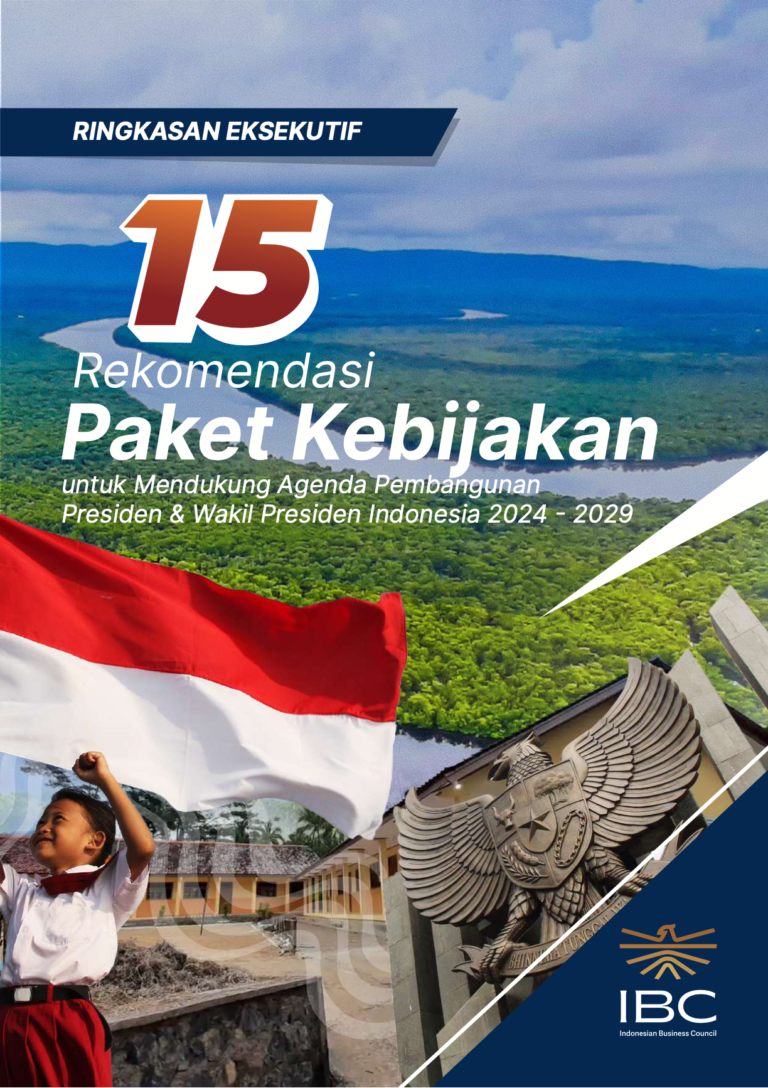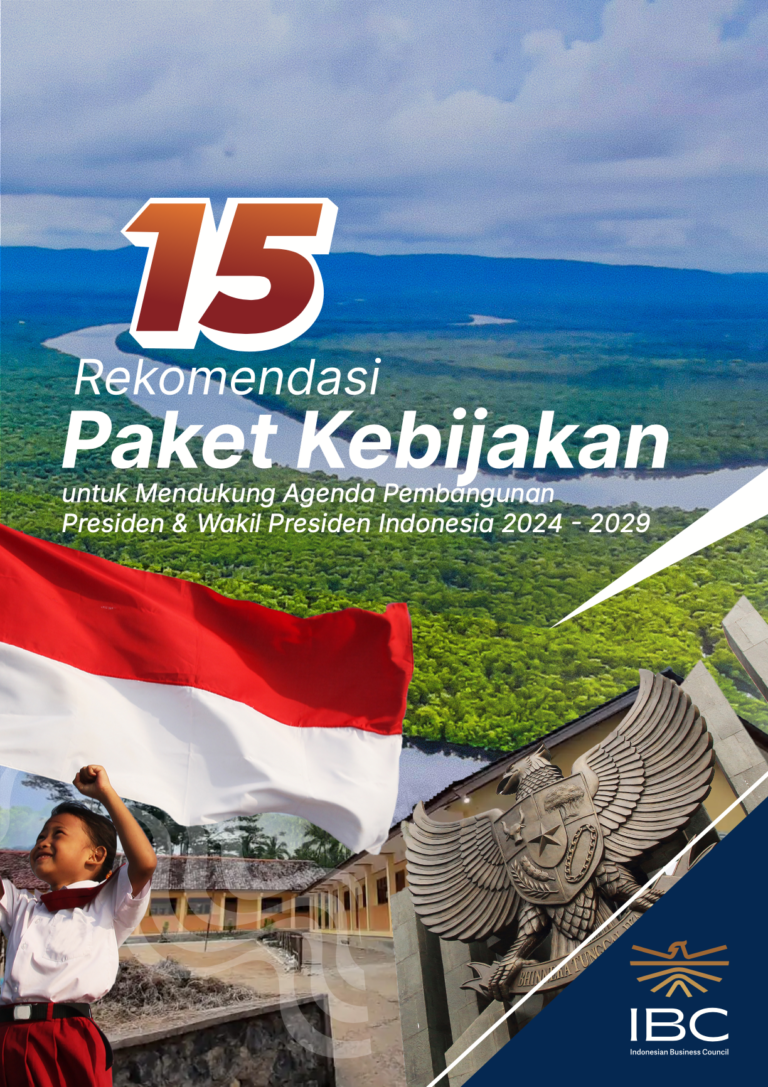The Indonesian Business Council (IBC) launched the portfolio book “Indonesia at the Climate Frontier: Business-Led Pathways for People, Planet, and Prosperity” to showcase private sector-driven climate and carbon initiatives. The publication highlights Indonesian companies’ efforts in advancing sustainable solutions, fosters collaboration with stakeholders, and positions Indonesia as a leader in the global green transition. Targeted at diverse audiences—including carbon buyers, investors, philanthropies, research institutions, technology firms, and think tanks—the book amplifies private sector contributions while enhancing visibility and partnerships on both national and international levels.
IBC's Papers on Carbon Market
Paper

Abstract
Paper

Abstract
Indonesia enters 2025 in the middle of a cross-fire, facing an increasingly complex economic landscape shaped by both global disruptions and domestic challenges. The nation’s ability to navigate shifting geopolitical dynamics, trade realignments, and technological advancements while addressing structural inefficiencies at home will determine its economic trajectory. The IBC Business Outlook 2025 provides an analysis of these key forces, offering insights to equip businesses and policymakers with the foresight needed to adapt, innovate, and drive sustainable growth.
Executive Summary

Abstract
Indonesia, with a growing US$1.3 trillion GDP, holds 80% of the world’s carbon sinks from its mangrove, peatland, and rainforest. Despite rising emissions in 2022, Indonesia aims to reduce GHG emissions by 31.89% unconditionally or 43.2% with international support by 2030, making carbon pricing and market mechanisms a significant prospect for financing its national sustainable development and competitiveness. However, comprehensive research diving into its systemic challenges remain limited. This whitepaper’s objective is to explain the most recent scientific, economic, innovation and governance challenges of the carbon market and recommend strategic actions needed to address such challenges. Insights and data were gathered through in-depth interviews and secondary data analysis. The analysis revealed that gaps remain in the carbon market’s knowledge management, entity-level emission caps, integrated carbon project registry system, financing incentives and sufficient private sector recognition. The 2023 launch of IDXCarbon showed ambitions to lead the carbon market, but this whitepaper suggests that Indonesia acts to address such challenges by operationalizing an acceleration team that strengthens development roadmap and updates its enabling regulations, as to build more champions in carbon market, especially from the private sector.
Paper

Executive Summary

Abstract
To support the leadership of President Prabowo Subianto and Vice President Gibran Rakabuming Raka, IBC proudly presents the white paper titled “15 Policy Package Recommendations to Support the Development Agenda of the President and Vice President of Indonesia 2024 – 2029.” This document maps out challenges across various focus areas and offers strategic policy package recommendations to support delivering 8 Asta Cita Missions, 8 Best Results Programs Fast, 17 Priority Programs, as well as other work programs.
The 15 policy package recommendations are based on the national management framework for a Competitive and Prosperous Indonesia. This framework consists of four main pillars: Economy, Human Resources, Governance, and Innovation, specifically formulated through 15 focus areas. These focus areas cover issues such as resource downstreaming, food estate, bureaucracy digitalization, and advanced technology production. Each policy package recommendation is designed in a modular fashion, allowing readers to select the parts most relevant to their interests and fields independently.
Paper


